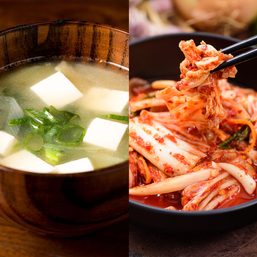SUMMARY
This is AI generated summarization, which may have errors. For context, always refer to the full article.
![[REFLECTION] Diet or you die](https://www.rappler.com/tachyon/2023/06/tl-diet-or-die.jpg)
These days I spend a great deal of time attending funerals. I also spend a great deal of time caring for two siblings whose lifestyles and eating habits had disabled them. One had a stroke, the other had a heart attack.
The church communities of which I am a part had just buried a well-loved friend who suffered from diabetes and its complications – hypertension and failing kidneys – and finally collapsing into a coma. She died of heart failure. Toward the end, she said she should have paid attention to the advice to refrain from eating so much meat and to eat vegetables, which she never liked to eat since she was a child.
Busy people like me may be a bit more compliant about eating healthy food, but hardly have time for exercise. Instead, because highly stressed and needing to unwind, we go on a binge watching a Netflix series and stay up late till the wee hours of the morning.
We are told in Scripture that the body of believers is the temple of the Holy Spirit. We have yet to understand what this means. The body is not just a biological machine. It is a living, talking space for the Spirit, a holy sacrifice that we offer up to God as an instrument for all that he wants to do in the world.
Unfortunately, the battle for a body that is fully consecrated to God is not easy. We abuse, destroy, and desecrate the body, not only by unholy sex, but by bad habits.
We vaguely yearn, for instance, to be freed of some addiction, some fatal vice. Yet we surrender helplessly to temptation, whether bad food or sinful seductions.
When faced with the need to change, we begin to make rationalizing excuses to cover our instinctive retreat.
Many of us may have radical ideas on what to do with social problems. But when it comes to changing our own lives we are – all of us – fundamentally conservative. The upheaval we most fear is that which upsets the delicate equilibrium we have so carefully built into our lives. It is no wonder that many feel trapped within what feels like purgatory, a circle of suffering that is their own making.
“Hell,” says the existentialist Jean Paul Sartre, “is when we cannot change.”
There is this spirit of frailty that always seems to deny and foil our hopes. We long for a higher order, for justice or a measure of beauty in our surroundings. But often we give way to the crass materialisms and subtle corruptions of our time.
The novelist-critic Robert Penn Warren once said that “every man is a suicide. If a man knew how to live he would never die.”
But the trouble is that none of us know how to really live. We all carry within us the seeds that drive us to self-destruction. We all have suicidal habits that make our life and that of others “nasty, brutish and short” as Thomas Hobbes once put it. In this sense we all die by our own hand. – Rappler.com
Melba Padilla Maggay is president of the Institute for Studies in Asian Church and Culture.
Add a comment
How does this make you feel?




There are no comments yet. Add your comment to start the conversation.